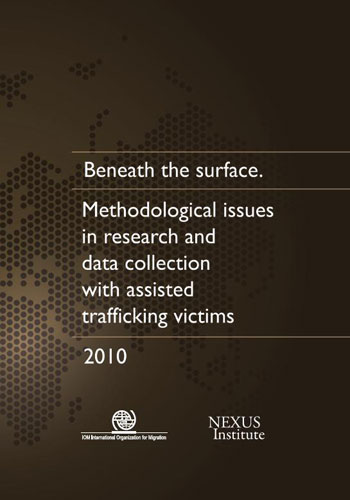Beneath the Surface -Methodological Issues in Research and Data Collection with Assisted Trafficking Victims

This IOM and NEXUS Institute-authored report considers the methodological and ethical challenges of conducting research and collecting human trafficking data. The analysis contained in this study sheds light on the debate about the current quality and integrity of research and data collection in the trafficking field; and offers recommendations to improve future efforts to produce reliable data and derive an empirically-based understanding about the nature of human trafficking. The authors draw, in particular, upon lessons learned from the use of the IOM human trafficking database as the basis of many current reports about the nature of trafficking in countries around the world. In addition to highlighting some of the limitations of collecting data directly from assisted victims, the report calls for more accurate and in-depth research and data collection on a broader range of topics related to trafficking. It also underscores the importance of ensuring that the weaknesses, as well as the strengths, of particular research and data collection efforts are clearly stated so that policymakers and practitioners can make informed decisions about the manner in which research findings and data are employed in the design, implementation, and evaluation of anti-trafficking responses.
